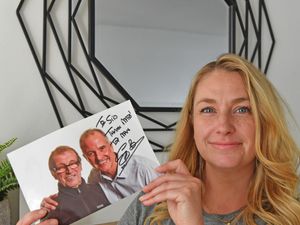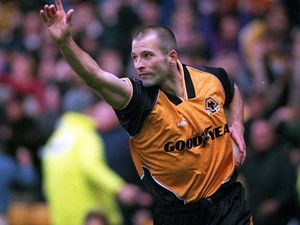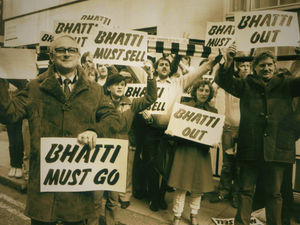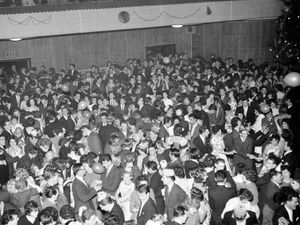Wolves on the brink of extinction, but European glory for Villa - a look back at the West Midlands in the 1980s
Mark Andrews takes a look back through the decades to mark the Express & Star's 150th anniversary. Today we look at the 1980s.
Watch more of our videos on ShotsTV.com
and on Freeview 262 or Freely 565
At the start of the 1980s, it looked like the sky was the limit for Wolves’ ambitions.
‘King Andy’ Gray appeared to have paid off a huge chunk of his British record £1.5 million transfer fee when he scored the winning goal in the 1980 League Cup final. While his goal secured Wolves a major piece of silverware and a place in the following season’s UEFA Cup, manager John Barnwell said his sights were now set higher than that. He said Wolves should be looking to emulate Midland neighbours Nottingham Forest by winning the European Cup. His skipper Emlyn Hughes said Wolves could dominate English football in the 1980s the same way that his old club, Liverpool had done in the 1970s.
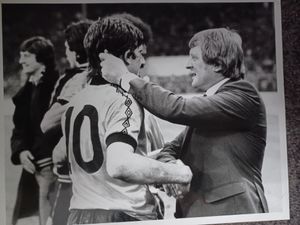
Things didn’t quite pan out that way.
A series of financial calamities saw the proud club plunge to the depths of the Fourth Division, and for a long time it looked as though Wolves would not make it to the 1990s.ProblemsIn truth, Wolves’ League Cup triumph masked deep-rooted problems at a club who had been living beyond their means for some time.
Chairman Harry Marshall’s bold plans to redevelop the tired Molineux stadium as a state-of-the-art £10 million all-seater stadium were certainly ambitious, but only one stand was completed before the club was plunged into severe financial troubles.
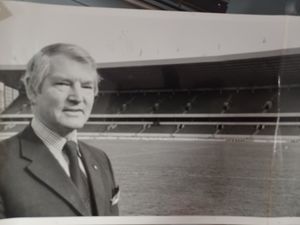
Wolves were relegated in 1982, and Marshall resigned as chairman, days after narrowly surviving a boardroom coup as anger mounted over the club’s soaring debts.
He was replaced by former Aston Villa chairman Doug Ellis, who called in the receiver after just 14 days in charge, before returning to Villa the following November.
The club was bought by a consortium fronted by flamboyant ex-Wolves forward Derek Dougan. and the future looked bright as the team were promoted back to top flight at the first attempt.
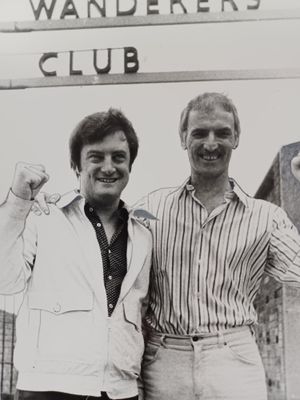
But the initial optimism quickly faded as it emerged that Dougan was merely a front man for brothers Mahmud and Mohammad Bhatti, two publicity-shy property speculators who had staked the club’s future on a scheme to redevelop land around Molineux. When the Bhattis scheme was refused planning permission, Wolves’ finances collapsed, the club suffering three successive relegations before receivers were called in again in 1986.
This time it looked unlikely the club would survive to start the new season in the Fourth Division, with a winding-up hearing scheduled to be heard in the High Court.
Talks also took place with the GM Vauxhall Conference about a reformed Wolves swapping places in the football hierarchy with Enfield Town.
Wolverhampton Council leader John Bird led a campaign to save the club, backed by the Express Star. After weeks of negotiations, a deal was struck, brokered by Birmingham City owner – and former Walsall supremo – Ken Wheldon. The complicated agreement saw Wolverhampton Council buy the ground and surrounding land for £1.1 million, with supermarket giant Asda paying off the remaining £1.8 million owed by the club in exchange for building a supermarket behind the North Bank. Wheldon, whose tangled involvement with different football clubs was causing concern among the football authorities, agreed not to involve himself in the day-to-day running of the club. His trusted lieutenants Dick Homden and Jack Harris were placed in charge of running the football operation.

